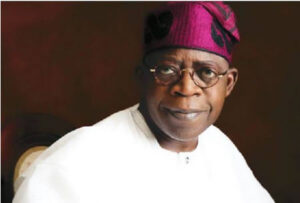Is Tinubu’s Cabinet Reshuffle Enough? A Critical Look at Nigeria’s Government Shakeup

When President Bola Tinubu announced his recent cabinet reshuffle, it sparked waves of reactions across Nigeria. For some, it was a much-needed reform, a glimpse of hope for a more accountable government. Yet, others, including former lawmakers, argue that this reshuffle barely scratches the surface, with “dead wood” still occupying crucial roles. With Nigeria facing pressing issues—economic instability, insecurity, and lagging infrastructure—the reshuffle’s effectiveness and impact are under scrutiny. This article dives into the complexities of Nigeria’s cabinet reshuffle, exploring whether it genuinely addresses the nation’s urgent needs or if more significant changes are essential.
The cabinet reshuffle saw a few underperforming ministers removed or reassigned, but the moves raised concerns among the public and political analysts. Many felt the reshuffle was incomplete, leaving unproductive ministers in critical positions such as Agriculture, Power, and Finance. Observers argue that while Tinubu’s changes may bring some fresh faces, they do not yet address the deeper structural issues that hamper ministerial effectiveness. The partial reshuffle has been perceived by some as a temporary fix rather than a solution to inefficiency and poor governance.
Critics, including former lawmakers, argue that the reshuffle failed to address what they term as “dead wood”—ministers and officials who have repeatedly underperformed. Certain ministries, such as Petroleum and Defence, were notably unaffected despite significant issues in their sectors, including widespread energy outages and ongoing security challenges. Social media reactions indicate public disappointment with some key ministers retaining their posts, viewing them as symbolic of the stagnation in Nigeria’s bureaucratic structures. Observers suggest that unless there’s a genuine commitment to overhauling these departments, performance will likely remain lackluster.
The economic situation in Nigeria remains challenging, with high inflation, unemployment, and widespread poverty. Ministries like Finance and Agriculture are seen as critical to improving living standards, yet public figures argue these sectors need more competent and reform-driven leaders. To move forward, many feel Nigeria’s leadership must focus on reducing poverty and creating jobs by appointing experts with both economic insight and a clear action plan. Tinubu’s administration has a difficult task ahead—transforming these ministries from bureaucratic institutions into engines of economic growth.
Nigeria’s administrative structure may also be holding back progress. According to political analysts, the current setup limits collaboration among ministers and separates them from the central government’s oversight. Unlike Nigeria’s early post-independence era, where ministers lived and worked closely with one another and the head of state, today’s ministers are scattered. This geographical and administrative separation has reportedly led to a lack of cohesive leadership. Critics argue that fostering a more collaborative environment could streamline decision-making and enable quicker responses to national crises.
Many Nigerians are already calling for another round of cabinet changes. While Tinubu has demonstrated willingness to make some adjustments, public pressure is growing for a deeper transformation. Citizens are advocating for a more systematic evaluation of each minister’s performance, with particular attention to addressing the structural and leadership issues plaguing critical sectors. The president’s administration faces a dilemma: balancing stability with responsiveness to ensure that ministries effectively serve the Nigerian people.
President Tinubu’s cabinet reshuffle was a significant move, but its impact remains a matter of debate. Critics believe that until the administration confronts deeper structural issues and prioritizes accountability within its leadership, Nigeria will continue to grapple with its current challenges. The reshuffle was a step forward, but if Tinubu’s government truly aims for long-term stability and prosperity, it may need to take bolder steps. As the Nigerian people await further changes, the administration’s next moves could either strengthen public trust or deepen the call for reform.
In the coming months, Nigerians will be watching closely to see if the government can turn this reshuffle into a genuine shift toward effective governance and progress.
Do you find Tmaq Media useful? Click here to give us five stars rating!




















